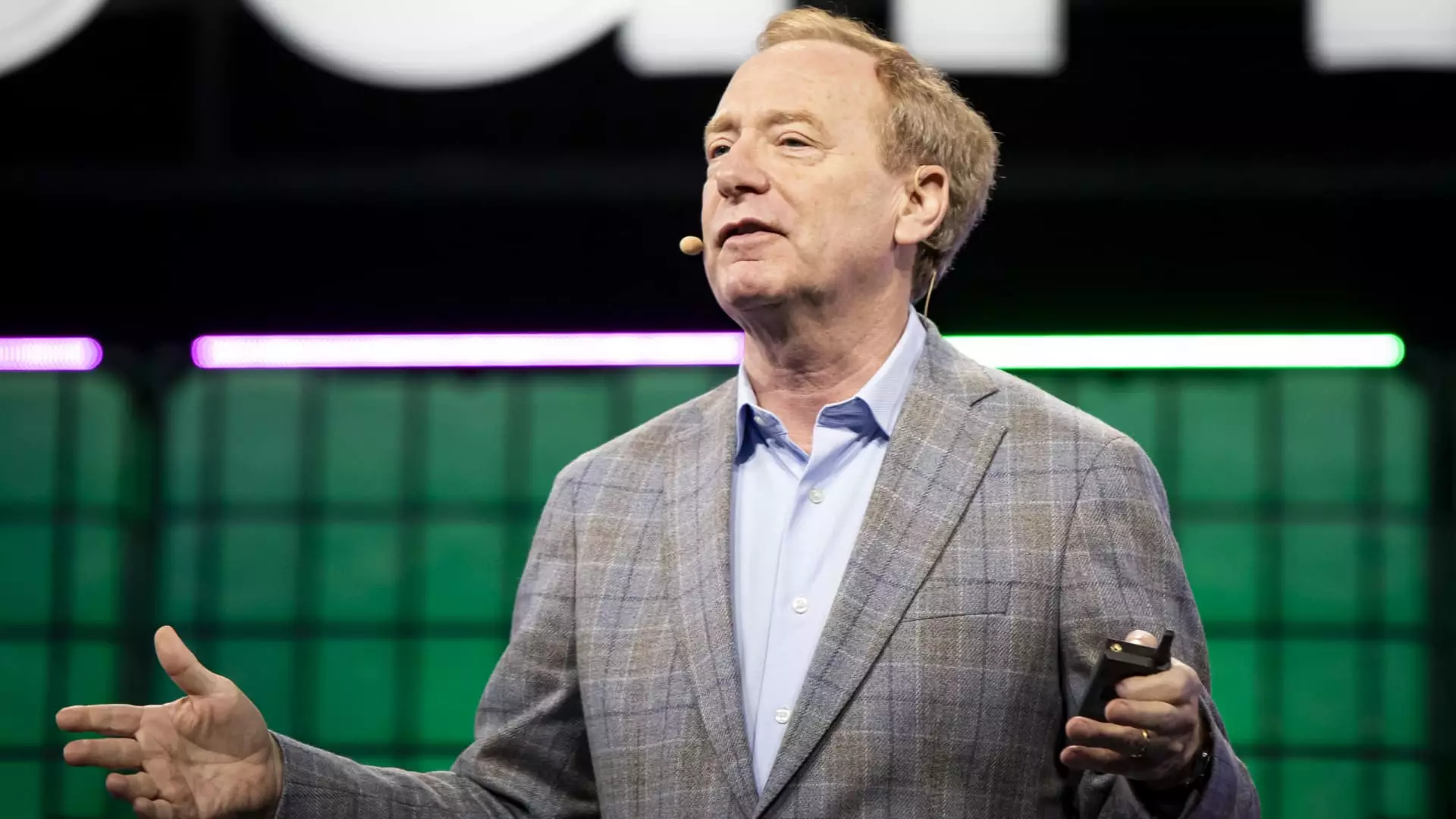In a move signaling its commitment to advancing artificial intelligence (AI), Microsoft has announced plans to invest a staggering $80 billion in fiscal year 2025 to expand its data center capabilities. This investment underscores the company’s aim to bolster its infrastructure capable of handling AI workloads, with over 50% of this capital expected to be allocated in the United States. As articulated by Microsoft Vice Chair and President Brad Smith, this strategy is not merely a financial endeavor; it reflects the growing importance of AI in the tech landscape and the necessity to build robust systems capable of supporting the technology’s future.
Smith highlights the significance of private investment and innovation from a variety of American tech businesses. This cooperative ecosystem, which includes partnerships with prominent entities such as OpenAI, reinforces Microsoft’s strategic positioning in the AI market. The collaboration has been mutually beneficial, allowing companies like Anthropic and xAI to flourish while enhancing Microsoft’s own product suite with AI-driven capabilities. This dual approach of supporting emerging firms and integrating advanced AI functionalities into existing software epitomizes Microsoft’s strategy to maintain its competitive edge in an increasingly crowded market.
The race for AI dominance has accelerated dramatically since the introduction of OpenAI’s ChatGPT in late 2022. This chatbot’s rapid adoption has compelled many technology firms to invest heavily in top-tier resources, such as Nvidia graphics processing units, essential for training AI models. Notably, Microsoft itself has heavily bankrolled OpenAI to the tune of $13 billion while seamlessly embedding AI functionalities into popular products like Windows and Teams. As a result, the company reported a significant growth surge in its Azure cloud services, attributing 12 percentage points of this growth directly to AI integrations.
While the investment figures are impressive, they also point to a deeper competitive landscape where the U.S. must proactively safeguard its position. Smith has expressed concerns about China’s growing influence in the AI domain, citing its strategy to provide developing nations with subsidized access to essential technology and infrastructure. He warns that standardization on Chinese AI platforms could lead to enduring reliance on these systems, posing a potential threat to American technological leadership.
To counteract these challenges, Smith is advocating for policies that enhance the country’s educational infrastructure, facilitate the promotion of U.S. AI technologies abroad, and foster a more favorable investment climate. It’s clear that the U.S. needs not only to continue investing in cutting-edge technology but also to cultivate a skilled workforce that can sustain growth in AI innovation.
In summation, as Microsoft embarks on this ambitious investment plan, it sends a clear message about the vital role of AI in future tech development. The company’s proactive measures and commitment to collaboration could set a new standard for the industry, ensuring it remains a formidable force in the global AI race.


Leave a Reply
You must be logged in to post a comment.